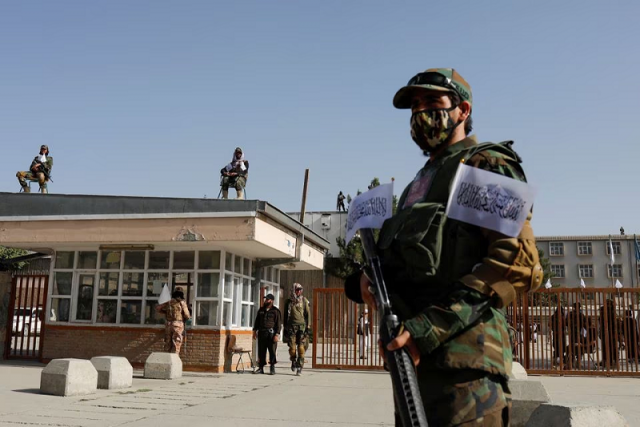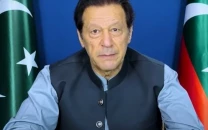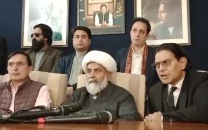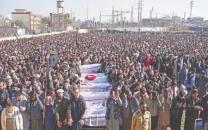Regional quartet quietly protest with Kabul on terror activities
Pakistan, Russia, China, Iran convey reservations to Afghan Taliban over activities of different groups

Four countries, which have high stakes in Afghanistan, last week lodged a joint protest with the interim Afghan Taliban government for not doing enough to curb activities of different terrorist groups.
The protest was recorded quietly by the representatives of Pakistan, Russia, China and Iran, who were in Kabul to attend a conference on January 29, a credible source familiar with the development told The Express Tribune on Sunday.
Those four countries had decided sometime back to convey their collective concerns over the activities of terrorist groups in Afghanistan to the Taliban regime. The idea of joint protest came from Pakistan, who believed that if key neighbours of Afghanistan put up a united stand that could make the Afghan Taliban government to mend its ways.
However, the source said when four countries agreed to dispatch their representatives to Kabul, the Afghan Taliban cleverly convened a conference, inviting other countries to counter the move.
The regional conference was attended by officials of India, Turkey, Indonesia and certain Central Asian States in addition to the representatives of China, Pakistan, Russia and Iran.
Pakistani special envoy on Afghanistan Ambassador Asif Durrani could not travel to Kabul for being ill. In his absence, Pakistan’s Charge d'Affaires in Kabul joined the special envoys of Russia, Iran and China to quietly convey reservations over the use of Afghan soil by terrorist groups.
Unlike Pakistan, China and Russia may not have taken a hard stance publicly, but privately they are worried over the activities of terrorist groups on the Afghan soil. China sees the East Turkestan Islamic Movement (ETIM), which operates from Afghanistan, as a serious threat to its security.
Read Has China formally recognised Taliban govt in Afghanistan?
Russia and Iran too have concerns over the spill-over impact of certain terrorist activities inside Afghanistan.
Pakistan, on the other hand, is more vocal in recent months in reminding the Afghan Taliban to fulfil their commitment not to allow the Afghan soil to be used again by terrorists.
A recent UN report revealed that the outlawed Tehreek-e-Taliban Pakistan (TTP) was strengthened since the return of the Taliban rule. The report noted that while the Afghan Taliban generally had “sympathetic” view about the TTP and its aims, some of its members joined the anti-Pakistan terrorist outfit as their religious duty.
The UN finding has endorsed Pakistan’s stance. Officials hoped that the collective message conveyed by four countries to the Taliban government would make the difference.
Despite over two years in power, no country has yet officially recognised the Taliban government, citing lack of progress on certain issues. China, however, recently took an unprecedented step to accept the Taliban appointment full-time ambassador to Bejing, a move seen in diplomatic circles as tacit recognition.
People familiar with Chinese diplomacy believe that the decision doesn’t mean Beijing has no longer reservations about the Taliban government.
They say China thinks it can incentivise the Taliban government to take action against terrorist outfits by engaging with them.
Some in Pakistan feel this may work in the country’s favour as China could use that leverage to persuade Kabul to address Islamabad’s concerns.



















COMMENTS
Comments are moderated and generally will be posted if they are on-topic and not abusive.
For more information, please see our Comments FAQ